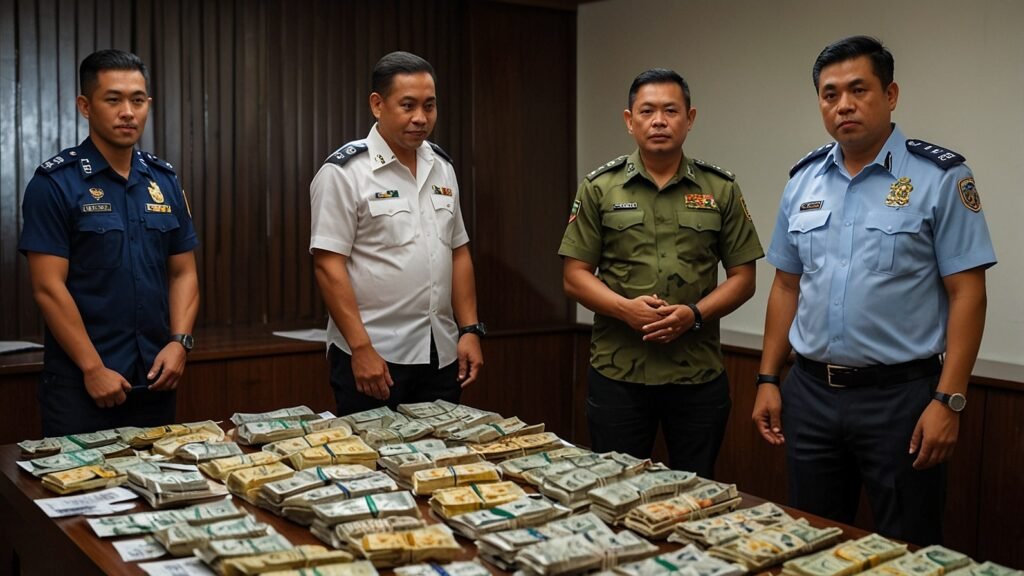
Following a significant setback to international police work, the Indonesian police, in cooperation with their Russian counterparts, have been able to break down an elaborate drug syndicate based on the island of Bali, which consists of Russian and Ukrainian nationals.
A brilliant piece of work, covered by The Times of India on July 23, 2025, has demonstrated the increased opportunities for cryptocurrencies to facilitate encrypted communication systems, thereby easing international criminal operations. This is a crucial step in combating transnational organized crime as a whole.
It is indicated that the Indonesian National Narcotics agency (BNN) pinpointed Bali as one of the major centers of this syndicate, which used blockchain technology and social media to carry out drug trafficking activities in a discreet manner.
Advanced technology applications presented the syndicate with unprecedented challenges for law enforcement, just as they demonstrate the changing nature of criminal businesses in the digital era. The story has drawn the world media’s interest because of its effects on cybersecurity, international relations, and the continuing war on drug trafficking.
The Mission: A Sting in Paradise
The sting operation by the BNN started months ago when intelligence reports revealed an increase in drug activities going on in Bali, which is a tourist destination that boasts unspoiled beaches and a nightlife.
The syndicate, whose members mainly included the Russian and Ukrainian nationals, is reported to have been supplying vast amounts of narcotics, cocaine, and synthetic drugs in the local and international markets. Having taken advantage of the fact that Bali is a popular tourist destination, the group could easily blend in with the expatriate and tourist circles, and, therefore, their discovery might not be as straightforward.
The authorities identified that the gang used closed messaging services, including Telegram and Signal, to organize their activities. Bitcoins and Ethereum, among other cryptocurrencies, were used to launder money and facilitate transactions that bypassed conventional banking systems. They also weaponized social media, where coded ads may appear as regular business promotions to lure customers. It was such sophistication that necessitated a coordinated effort by several agencies, which culminated in several raids in mid-July 2025 in Bali.
In implementing the operation, Indonesian police confiscated large amounts of illicit substances such as narcotics weighing 566 grams with a street value of about Rp 22.64 million (about 1,500 USD), vehicles, and gadgets that were involved in the syndicate business.
They stated that the value of the confiscated property was Rp 36.57 million (approximately $2,400). Several key members of the syndicate have been arrested, with attempts being made to apprehend other suspects who remain at large.
Global Transformation: A Global Front
This operation has been efficacious in international cooperation efforts to counter transnational crime. The actions of the syndicate were monitored by Indonesian authorities, which cooperated extensively with Russian law enforcement, exchanging intelligence and organizing a multi-state operation to dismantle the network. The partnership indicates a trend of increasing cross-border cooperation in fighting organized crime at an international level, especially in some countries such as Southeast Asia, which have turned into drug trafficking hotspots.
According to a BNN spokesman at a press conference on July 24, 2025, this operation sends a loud and clear message to criminal organizations. No matter how advanced your practices are, the international law enforcement community will be united and will bring you to justice. The spokesperson further stated that it is not the time to relax, as the use of cryptocurrencies and encrypted platforms is likely to increase within criminal networks.
The Broader Implications of Technology and Crime
The Bali drug raid has sparked numerous opinions on the intersection of technology and crime. The use of blockchain and encryption is indicative of a broader trend in 2025, where cybercriminals and traffickers are increasingly turning to digital tools to obscure their activities.
It can be compared to recent events, such as the wave of cyber attacks targeting Indian infrastructure, including the spread of cyber attacks following the Pahalgam terror attack by a hacktivist movement, which disrupted services through Distributed Denial of Service (DDoS) attacks.
Analysts caution that the increasing ease of using cryptocurrencies, as well as using encrypted platforms, is facilitating the activities of criminal groups who are getting bolder than ever.
Dr. Elena Petrova, a cybersecurity analyst in Moscow, said that the anonymity provided by blockchain technology is a two-edged sword. Although it has valid advantages, it provides a safe zone for running illegal activities unless there is a combined effort between the government and technology corporations to control it.
International and Local Response
The Bali bust is all over the news and social media platforms, where people have applauded the intervention of the Indonesian and Russian authorities as a quick one. Users across X have been both shocked and impressed by what has been unfolding on their platform regarding the competency of the syndicate in its wrongdoings and the complexity of the investigation. Is Bali a drug trafficking center? That’s wild. Well done, BNN, on cracking this,” said one user, a sentiment echoed many times on the platform.
The case, however, has raised concerns about the safety of tourist destinations, such as Bali. Businesses in the surrounding areas are concerned that the negative press may lead to a decline in tourism and are demanding increased police presence and publicity about the area. The Bali tourism board has already stated that it will cooperate with law enforcement to ensure the island remains a safe tourist destination.
Forward Thinking: The Battle Goes On
With the ongoing investigations, law enforcement agencies are now pursuing the global affiliation of the syndicate, with suspicions that the network may extend beyond Indonesia and Russia.
The situation has also generated interest from the U.S. Federal Bureau of Investigation (FBI) since the syndicate uses the same tactics as those used by the North American gangs, including the MS-13, which was recently raided in a crackdown on the Indian-origin suspects.
This Bali drug bust is a graphic reminder of how modern organized crime is a challenge. As criminals increasingly utilize new technologies, law enforcement agencies worldwide are compelled to develop innovative modes of operation and collaboration. A testament to this is that the streets of Bali are a little safer now, but the fight against global crime networks is not over yet.

